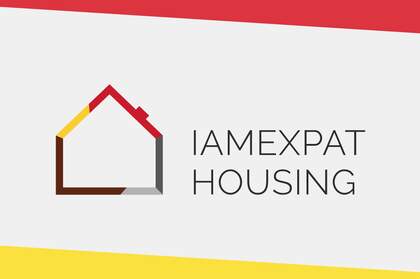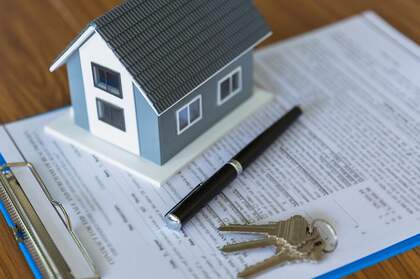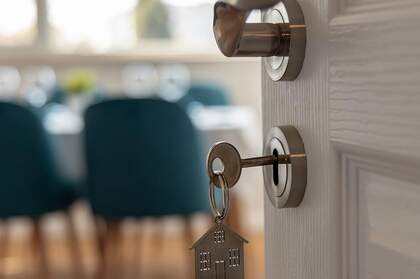As part of most rental contracts, your landlord will charge a lump sum rental deposit at the start of your tenancy. This deposit is based on the size of the accommodation and the rent that you pay. In theory, this deposit is to ensure that major damage caused to the property is covered during your tenancy before making the final step to finding a house or apartment to buy.
Although this money can be returned to you at the end of your contract, there are still innovative ways to use the funds and it is essential to know the circumstances which you will be denied your deposit.
Who pays rental deposits in Switzerland?
When looking for a house in Switzerland, the majority of rental agreements involve a rental deposit. This applies to all types of housing and is typically based on the value of the property. Furnished apartments have higher deposits due to the landlord owning the furniture, while student housing and houses of multiple occupancy have higher deposit rates due to the nature of life at university. Accommodation owned by housing associations do not charge a deposit but a regular membership fee instead.
How much are Swiss rental deposits?
Rental deposits are capped to a maximum of three months’ rent in your accommodation. This typically amounts to around 500 to 7.000 Swiss francs as a deposit. The money is paid during the first month of your residence and is returned to you after you have moved out.
Rental deposit bank accounts in Switzerland
Once you have paid your rental deposit, the landlord must put the money in a rental deposit bank account. Some banks offer interest payments on rental deposits while they are being held by the landlord. This can range from 0,01 to 0,025 percent per year. Although it is the landlord’s choice which accounts the money goes to, you can ask to be placed with a bank that offers competitive rates on deposits.
When do I get my Swiss rental deposit back?
In Switzerland, tenants receive their rental deposit once the lease has been completed. This is usually around when you move out of your accommodation. In your notice letter, you are encouraged to specify to the landlord which account you would like the deposit to be paid to.
Landlord refusing to pay rental deposit in Switzerland
Your landlord is entitled to refuse repayment of a rental deposit if they believe that the criteria for maintenance and cleaning have not been met. They must make this decision clear to the tenant within 30 days of moving out, detailing why the deposit has not been repaid. In many cases, the landlord will specify what actions need to be taken in order to receive the deposit.
Criteria for not receiving a Swiss rental deposit
In Switzerland, there are several criteria that landlords can use in order to withhold repaying a rental deposit. These relate to the overall quality of the accommodation when you leave and any obligations that you have not fulfilled. If you believe that you are being unfairly denied your rental deposit, it is recommended to consult a lawyer and appeal through your local conciliation board.
Excessive damage
Excessive damage in this case is damage caused to accommodation that is not a consequence of regular wear and tear. The definition of this damage is outlined in your rental contract or by the regulations of your local county (canton). Generally speaking, the longer the tenancy, the more lenient landlords are to damage to all types of housing. The costs of repairing this damage are covered by the rental deposit, although costs exceeding this amount will be charged to you as well.
Uncleared modifications to the accommodation
If you have made modifications to the interior of your rental accommodation that were not agreed upon with the landlord, you are liable for any costs involved in restoring the housing to its original form. This can include interior modifications, kitchen replacements, bathroom improvements, layout changes and, in extreme cases, extensions. Any modifications the landlord wants to remove will be done using the rental deposit.
Cleaning
When you leave rental accommodation in Switzerland, it is essential that you pay for cleaning services. In some cantons, it is required by law to have a full and comprehensive cleaning done to your house, certified by a professional cleaner. If you are found to have not cleaned your house up to the highest standard, or have left items behind, the cost of a short-notice cleaner will be deducted from the rental deposit.
Bear in mind that cleaners are in high demand during designated moving days and the cost of securing one at short notice is often many times more expensive than your deposit.








